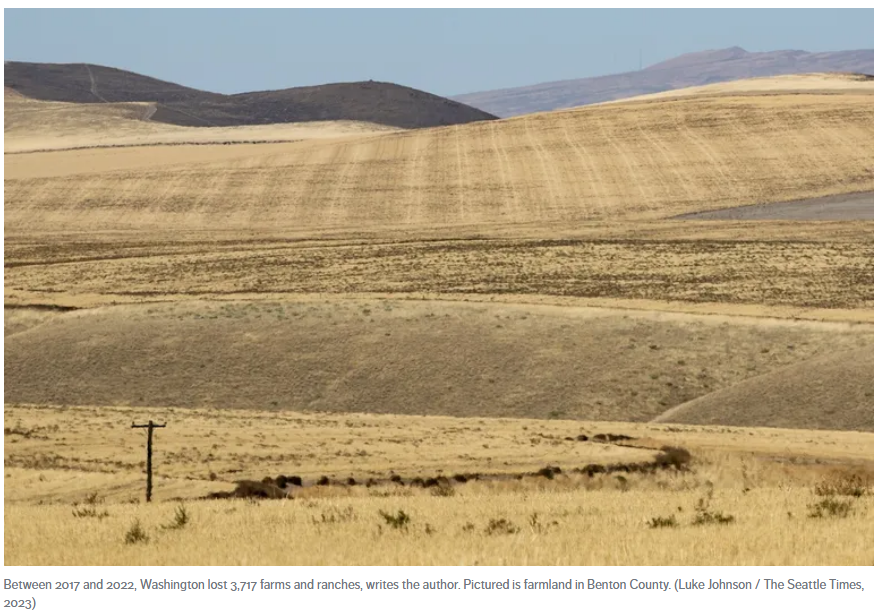Can Our Convergence Support Farms and Farmers?
A friend of mine sent me this….
Between 2017 and 2022, our state lost 3,717 farms and ranches. It also lost more than 102,000 food-producing acres. To put these numbers in perspective, Washington lost a total of 3,456 farms in the previous decade.
A panel of farmers at your 2024 convergence might just be the ticket to bring this crisis to our attention, and to deepen our understanding of the importance of farmers in our communities and bioregions.
These folks know. We don’t. They are also being eliminated in Europe to “reduce carbon” in the name of climate change. Perhaps we can stand in solidarity with them, create an alliance and help educate in regenerative farming. Read original article here.
Fourteen farms a week vanished from Washington state every week during the last five years. The U.S. Department of Agriculture recently released data from the U.S. Census of Agriculture and the numbers are shocking.
Between 2017 and 2022, our state lost 3,717 farms and ranches. It also lost more than 102,000 food-producing acres. To put these numbers in perspective, Washington lost a total of 3,456 farms in the previous decade.
We all know that correlation does not equal causation. Yet increases in operating costs and the enactment of hostile state and federal agricultural policy certainly suggest causation.
For example, 2022 was the first year agricultural overtime pay was implemented in Washington state.
In just a year’s time, agricultural employers saw their labor costs increase nearly 10% per employee by adding just five hours of overtime pay a week. An increase of $107.73 per employee, applied to the 164,000 farmworkers in our state, represents an increase of $17.67 million in overtime wages a week industry wide.
Farms and ranches are often misunderstood in discussions about labor, with the prevailing belief being that increased costs can simply be passed on to the consumer. However, farms and ranches negotiate set prices often before their operating prices are incurred. The overtime law also reinforced the mistaken but persistent belief that farms and ranches are rife with poor treatment of people who work hard, often far from their homes and native languages.
Similarly, in recent years, debates around riparian buffers have spotlighted an urban prejudice against agriculture in environmental stewardship. The dominant urban presumption seems to be those least connected to land care the most, while farmers and ranchers have an exploitative relationship with it.
Like other industries, our state’s farms and ranches have evolved. The perception of them should evolve too. The focus on good working relationships, living wages, environmental stewardship and care for the land, water, soil and native species is an intrinsic part of agricultural life. Without well-paid employees or healthy land and clean water, farms and ranches are stripped of yet another part of their means of survival.
As our farms disappear, so, too, does our access to food grown locally. Gone will be the opportunities for low-income families to shop for local produce at a fruit stand or farmers market stall. Gone will be the chance for individuals to find meat that is grass-fed from a rancher they have met.
Taking away direct access to locally produced food takes away access to true food equity — ensuring that everyone has access to food. When local food producers are forced to focus on their survival, charitable efforts are often among the first items to be sacrificed. Donations of fresh produce to food banks are often abandoned in favor of monetizing as much product as possible.
While the disappearance of 3,717 farms in five years is deeply concerning to the agricultural community in our state, it should alarm every Washingtonian.
William Jennings Bryan wrote, “Burn down your cities and leave our farms, and your cities will spring up again as if by magic; but destroy our farms and the grass will grow in the streets of every city in the country.”
Maybe Bryan was wrong about the grass growing in our streets. Maybe mega-corporate farms and automated technologies can replace the American farmer and maybe consumers won’t mind having fewer choices and a lowered standard of freshness. But is that a future we want to promote?
The fates of the Washington farmer and the thousands of families that rely on them for work are largely in the hands of increasingly urban lawmakers and the people they serve. The only question that remains is whether they will seek a deeper understanding and accommodation of the unique challenges of farming, or will they end it as a way of life?
Pam Lewison is a fourth-generation farmer in Eastern Washington and the director of the center for Agriculture at the Washington Policy Center.

Cascadia BioFi Conference Seattle May 16-18 2025 🙂
For everyone interested, Dept of Bioregion and Regenerate Cascadia are hosting a Cascadia BioFi Conference in Seattle May 16-18 at the George Town Steam Plant and would love to see everyone there! This Seattle BIoFi Conference will explore bioregional finance...
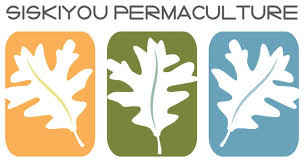
Sisikiyou Permaculture News Life has sweet moments
This is the latest Newsletter from Siskiyou Permaculture Greetings friends, We’re smelling the blossoms and welcoming the spring resurgence. Life is still compelling; just breathe! We have a few things to share with you and start with a synopsis before the...
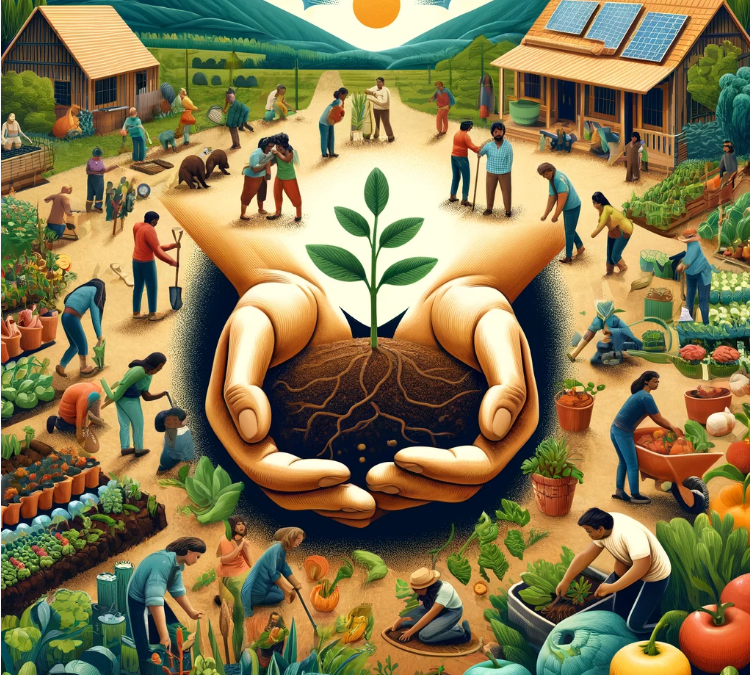
Invitation to Permaculture Solidarity
Sign the Permaculture Solidarity Statement PIMA, Permaculture Institute of North America, offers the following suggestions for building civic responses to the sociopolitical and environmental crises: grow resilience, strengthen alliances and choose regenerative...
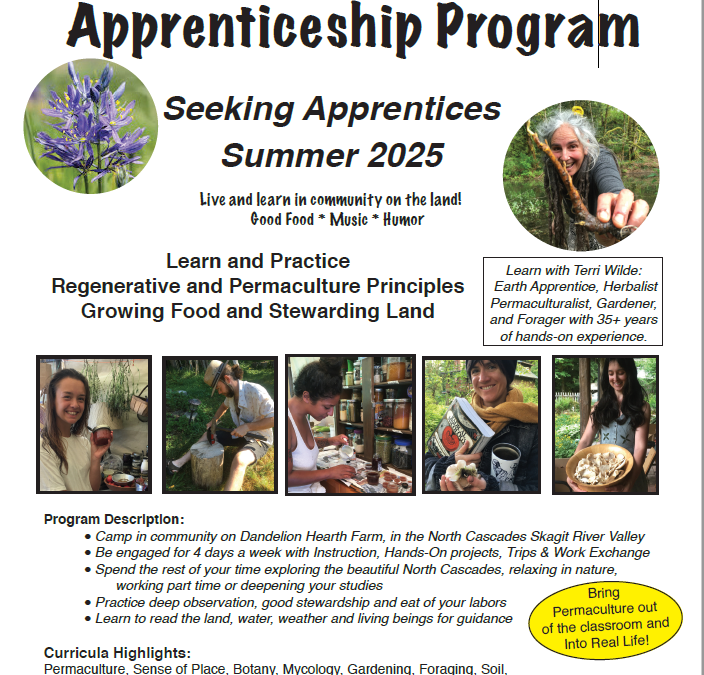
Regenerative Earth Apprenticeship Program 2025
We will be offering our Regenerative Earth Apprenticeship Program for a few qualified, interested people again this summer. If you know of anyone who may be interested, please share this information. We offer 3 month long modules, living on beautiful land in the upper...

Organizing Cascadia: Join the 2025 Global Learning Journey
Regenerate Cascadia is partnering with the Design School for Regenerating Earth to bring Cascadians into the newest global course called: "How to Organize Your Bioregion." This program is for anyone ready to shift from theory to action—learning how to let the land...
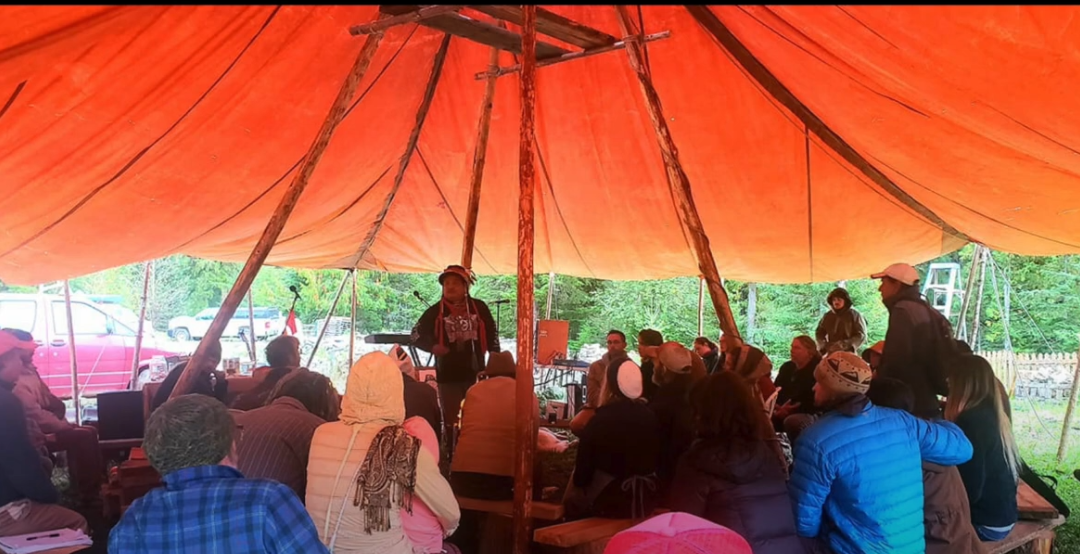
Sky Lodge Fund Raiser for Global Earth Repair
A Message From Skeeter Michael Pilarski: Hello NW Permaculture Friends, I just started a fund raiser for a new skylodge. My old one is now at the end of its journey. I really need people to donate money to get the ball rolling. Even a small donation just to build...
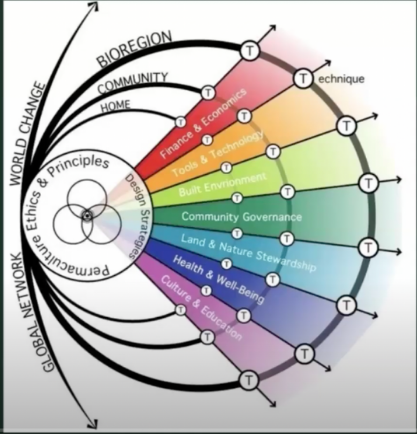
Permaculture and Bioregioning
This was shared in the Regenerate Cascadia Hylo by Bill Baue of r3.o today 2-21-25. Recording / Deck Links for Bioregioning & Permaculture Open Dialogue Created by: Bill Baue Riding the energy from yesterday's 2nd Open Dialogue in r3.0's 2025 Series, focused on...
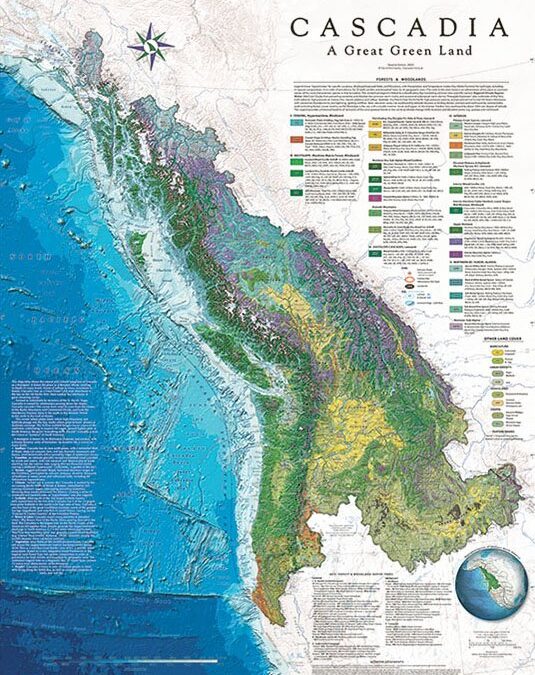
New Vision – Cascadia Bioregional Permaculture
Dear NW Permaculture Community, We invite you to NW Permaculture Community Visioning Planning How can this organization serve you? What are its strengths? How has it touched your life or community? What is its future mission and goals? What kind of...

Restorative Circle
Want to develop skills for engaging your community, when conflict arises, in order to resolve differences and support diversity? Join this event for a transformative journey starting January 14, 2025, as we embark on our next six-week Restorative Circle Facilitator...
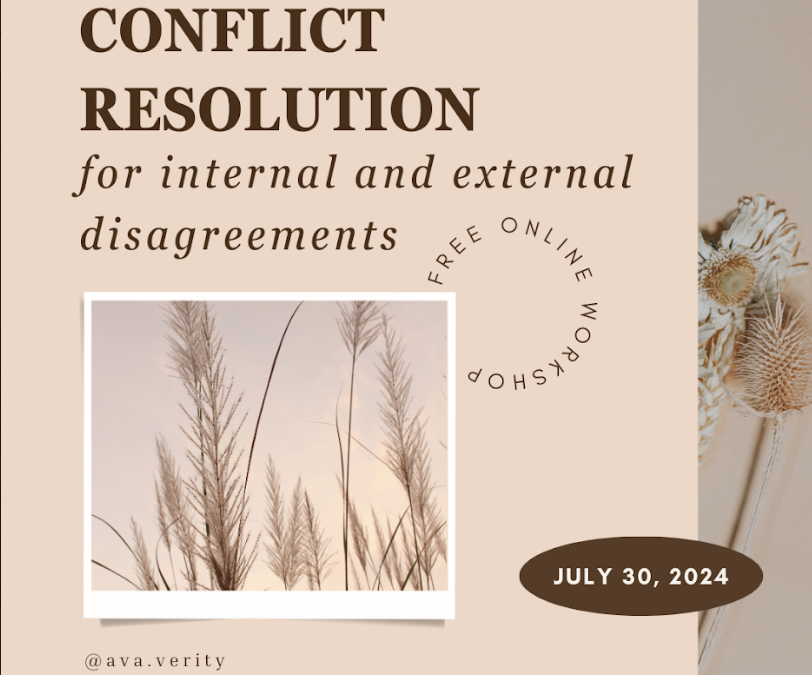
Conflict Resolution Gathering July 30th
I met Ava via Resilient Communities Project. She will be leading a free workshop on conflict resolution, focusing on both outer and inner conflicts, and the relationship between the two. When: Tuesday, July 30, 2024, 2:30pm PST Where: online, with replay available...

